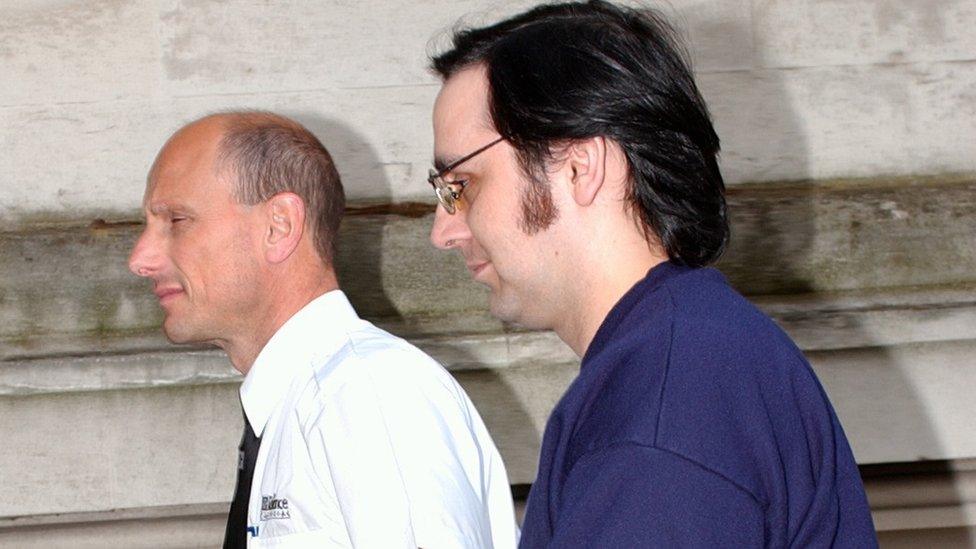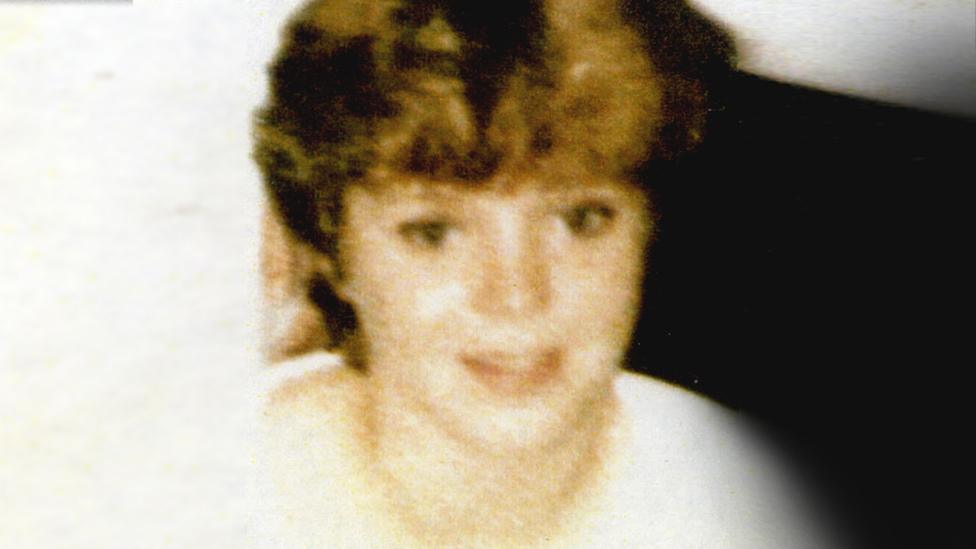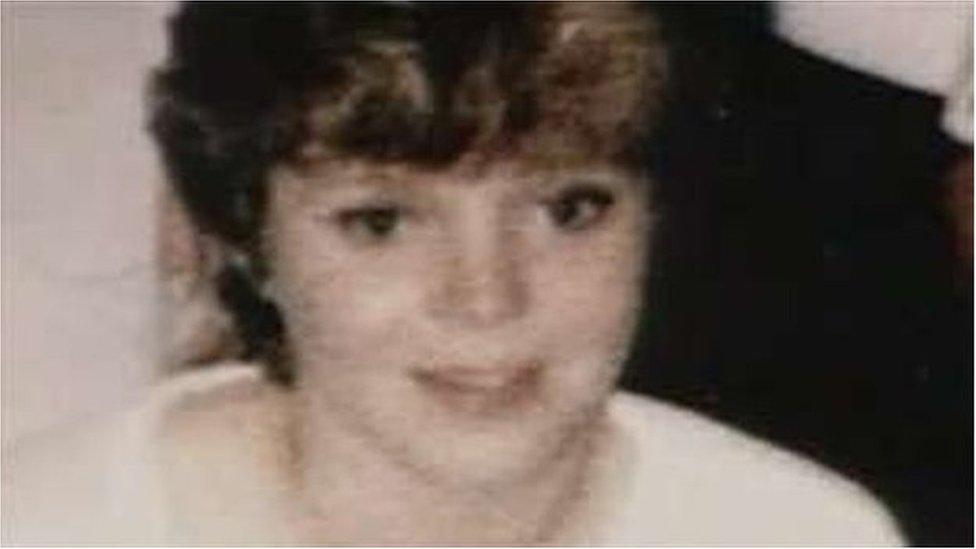Lynette White: Murderer Jeffrey Gafoor 'not suitable' for release
- Published

Jeffrey Gafoor was jailed for Lynette White's murder in July 2003
One of Wales' most notorious murderers is not suitable to be released from prison, according to the Parole Board.
Jeffrey Gafoor was sentenced to life in 2003 for the murder of Lynette White in Cardiff in 1988.
Covid restrictions had prevented Gafoor making "as much progress as hoped" since transferring to an open prison last year, the Parole Board was told.
Justice Secretary Robert Buckland must now decide whether to accept the board's recommendation.
A summary of the hearing from 21 May states that Gafoor had made progress, but has also been unable to undertake any temporary releases from prison because of the pandemic.
Gafoor was jailed for life with a minimum sentence of 13 years in July 2003 after pleading guilty to murder when he was 38. He confessed to stabbing Ms White, 20, with a knife following a row over £30.
The document said: "After considering the circumstances of his offending, the progress made while in custody, and the other evidence presented in the dossier, the panel was not satisfied that Mr Gafoor was suitable for release.
"However, on assessing the benefits and risks of Mr Gafoor remaining in open conditions, the panel recommended that he should do so.
"He had made considerable efforts to address his areas of risk and had demonstrated steady progress.
"Mr Gafoor will be eligible for another parole review in due course."

Lynette White was found murdered on Valentine's Day in 1988
The review was told the probation service had yet to "fully develop" a release plan for Gafoor, but would likely involve him living in supported accommodation, with strict limits placed on his movements, contacts and activities.
"The panel concluded this outline plan was not ready to manage Mr Gafoor in the community at this stage," they said.
It was only after advances in DNA technology that Gafoor was caught, 15 years after Ms White was stabbed more than 50 times at her docklands flat in Cardiff.
The hearing was told that Gafoor's risk factors at the time of the murder included a "loss of control when angry or feeling under threat" and there were concerns about his emotional wellbeing.
While in prison, Gafoor had undertaken accredited programmes to address his "decision-making, better ways of thinking and tendency to use violence".

The murder took place in 7 James Street (end building on right) close to where the Wales Millennium Centre now stands
At his sentencing, prosecutor Patrick Harrington QC told the court: "He did not simply kill, he attacked in a barbaric manner, cutting, stabbing and slashing his victim over 50 times, cutting her throat, slashing both wrists, cutting, stabbing and slashing her face, arm and especially the torso.
"It is tempting to talk of the defendant having attacked in a frenzy, but the pattern of distribution of injuries suggests a particular mindset."
Ms White's murder originally resulted in three innocent men being jailed in 1990 before their convictions were quashed on appeal in 1992.
A reopening of the case led police to Gafoor 11 years later.
A £30m investigation, Britain's biggest police corruption probe, was launched into whether 13 South Wales Police officers perverted the course of justice in manipulating evidence, but in 2011, a trial of eight officers collapsed when documents went missing.
- Published3 August 2018

- Published11 May 2018

- Published14 June 2016

- Published14 February 2018
